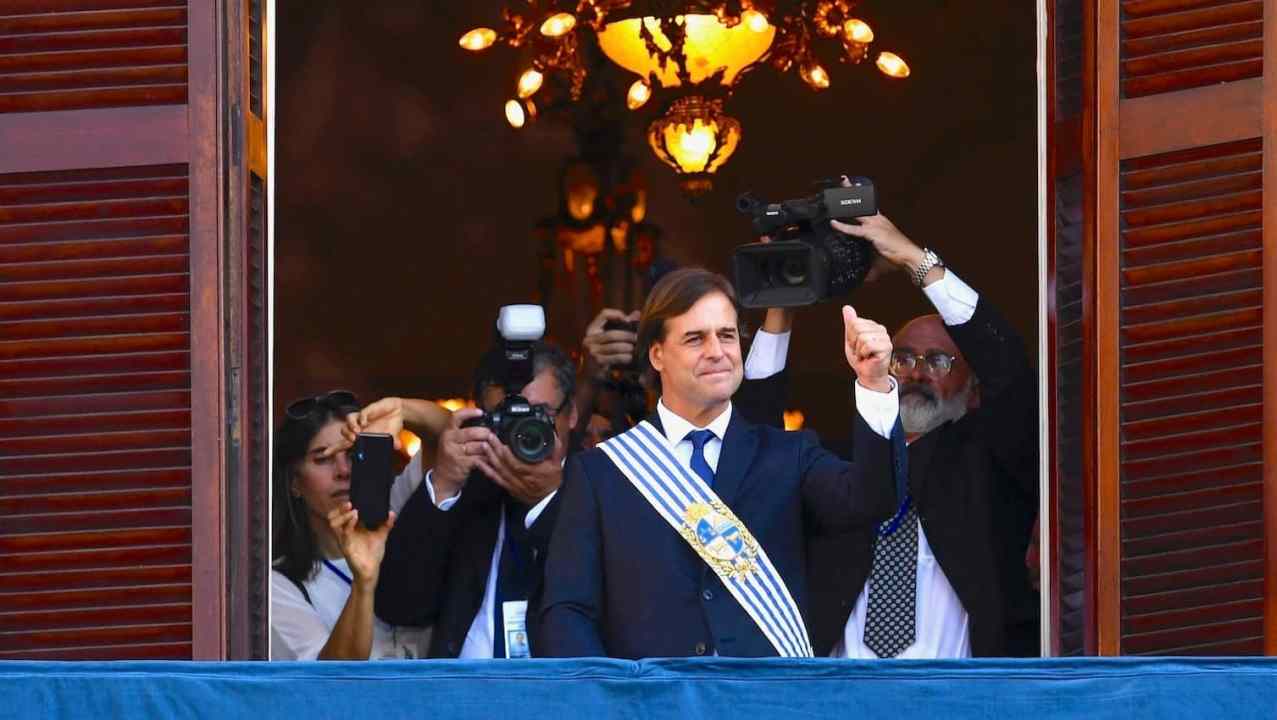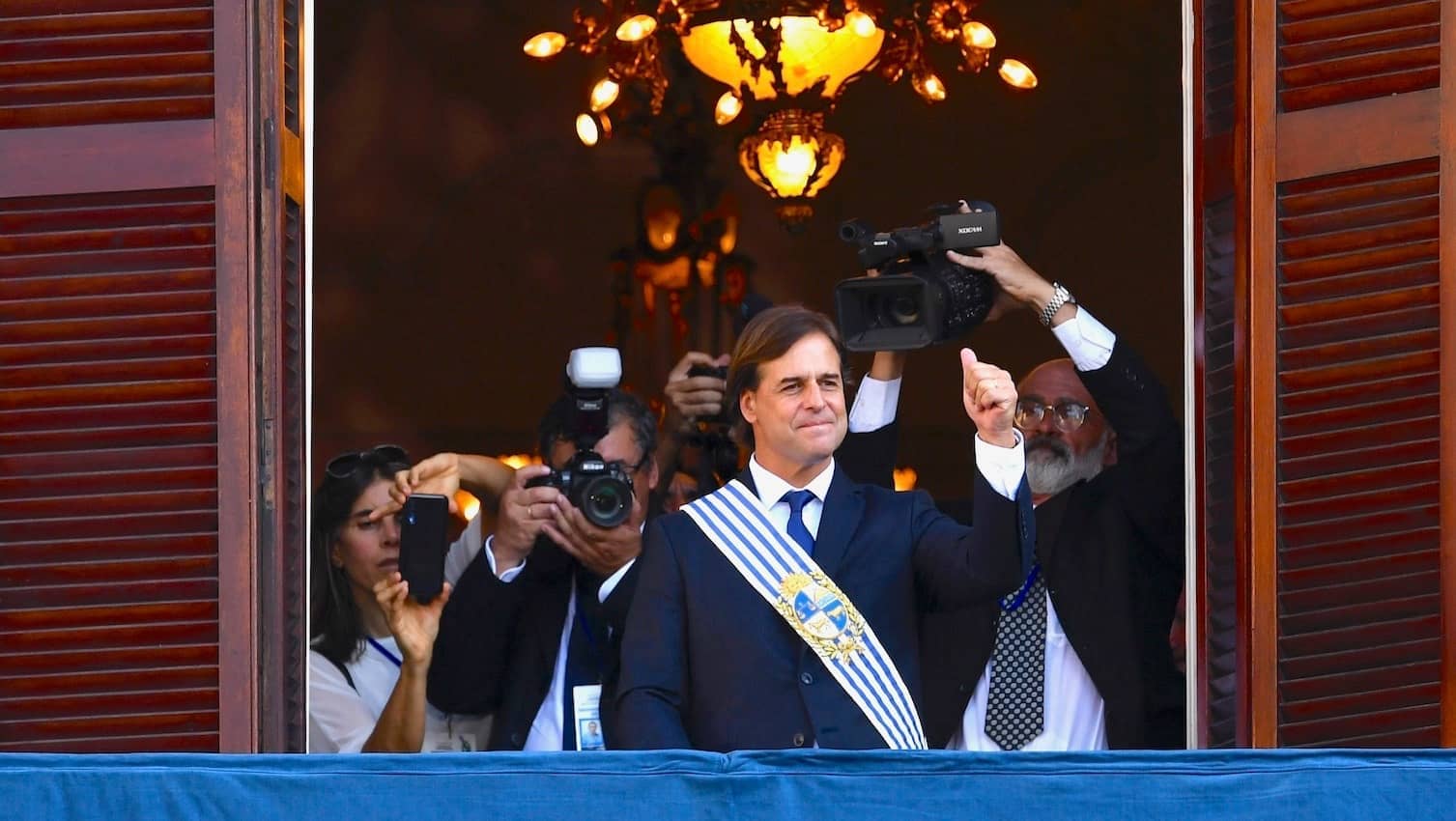Of all the epithets for Latin America, the most frustrating and demoralising must be the ‘forgotten continent’. Latin America is not so much forgotten as overlooked. Part of the reason for this may lie in its cultural proximity but geographical distance to the West: what Alain Rouquié, the French political scientist, called ‘far-western’. Familiarity, even on these fringes, has bred indifference.
Last month, however, Britain remembered its historical ties to Latin America when Boris Johnson welcomed the President of Uruguay, Luis Lacalle Pou, to Downing Street. The invitation had been extended and not sought, which the President was quick to point out to the Uruguayan press. This was a meeting of equals, not the usual trope of the Global South heading north, cap in hand. For many Latin American countries, relations with the Anglosphere remain complex, all too often based on shifting ideology. None more so than with Britain, whose connection to the region is more nuanced, based as it is on an informal empire conceived through commerce in the 19th century.
Uruguay continues to be the region’s great success story
Where other South American republics gained independence through its libertadores (‘liberators’), Uruguay’s route to emancipation in 1828 was idiosyncratic, even by the region’s standards. It fell to an Englishman, Lord Ponsonby, to establish a buffer state that would appease its belligerent neighbours, Argentina and Brazil, as well as to carry British interests. While the rest of the 19th century was played out in a succession of wars, it was in the opening decades of the 20th century that Uruguay transformed itself from a rural backwater into the first modern social democracy in Latin America. Secularisation, the abolition of the death penalty and the recognition of the rights of illegitimate children accelerated the country’s development. The electoral franchise, through the introduction of the secret ballot and proportional representation, reinforced the idea of Uruguay not just as un país modelo (‘a model country’) but as an outlier in the region. In 1951, a New York Times article described Uruguay as the ‘Switzerland of the Americas’ on account of a foreign trade boom and the large amounts of incoming flight capital. The moniker stuck, and so did the idea of the country’s inherent exceptionalism.
President Lacalle, an engaging and far-sighted politician in his late forties, leads the country’s centre-right coalition (which also includes a centre-left party). He is a pragmatist, an advocate of free market economics and cuts a cosmopolitan figure despite coming from a country of only 3.5 million. ‘I’m confident that the future is designed for a country like Uruguay,’ he said last year. Globalisation, he believes, is key for the country. Nevertheless, he needs willing partners. Lacalle has been critical of the US government, if only for its cavalier one-size-fits-all attitude to the region: ‘They think that from the border in Mexico to Tierra del Fuego, we have all the same problems and the same needs.’ The fact that Uruguay is not in dire need of infrastructure will mean a far more balanced trade relationship with China than other Latin American states.
Uruguay continues to be the region’s great success story. It may be one of the smallest countries in Latin America, but it is one with the highest quality of living and has the largest middle class. (Uruguayans like to adhere to the old gaucho maxim, ‘naides es más que naides’ ‘here nobody is better than anybody else’.) The country also has some of the lowest rates of extreme poverty in the region and the highest income per capita. Unsurprisingly then, it’s also one of the least corrupt. More importantly, political stability and strong institutions have protected Uruguay from the seismic political fluctuations experienced by its neighbours. During the pandemic, the government was quick to roll out vaccinations and curtail lockdowns. The coalition has been careful not to undo too many of the policies – especially in health and education – of its left-wing predecessors. In such a close-knit country, the notion of the welfare state remains central to Uruguayan political identity. Lacalle’s cabinet is also far younger than its left-wing predecessor.
Unfortunately for the President, the country’s membership of Mercosur, the South American trade bloc established in 1991, is frustrating his plans for globalisation. Mercosur – which comprises Argentina, Brazil, Paraguay and Uruguay, (having suspended Venezuela’s membership for trade and human rights transgressions) – remains one of the most protectionist regions in the world, something not lost on Lacalle. In a recent BBC interview, he admitted, ‘Brazil and Argentina are not willing to open as fast as we want and as fast as we need.’ At the 30th anniversary of the trade bloc last March, there was a petulant exchange with Alberto Fernández, the present of Argentina, when Lacalle pushed for more flexibility for the members to negotiate free trade agreements. ‘If we are a burden, take another boat,’ was the Peronist leader’s curt response.
In mediating the different interests of the Mercosur, Lacalle likes to recall a maxim often quoted by his great-grandfather, Luis Alberto de Herrera, who led his party for more than 50 years. ‘We have no eternal allies, and we have no perpetual enemies. Our interests are eternal and perpetual, and those interests it is our duty to follow.’ Lord Palmerston’s House of Commons speech may be an unlikely source for a Latin American politician, but it is in line with Lacalle’s free-market outlook.
With Latin America currently in the grip of a new pink wave, Lacalle will have his work cut out. Left-wing parties have come to power in Argentina, Bolivia, Peru, Mexico and Chile, with Luiz Inácio Lula da Silva likely to oust Bolsonaro in Brazil later this year. Lula, who urged Chileans to vote for the new President and radical leftist Gabriel Boric, has asked the people of Colombia to vote for ‘comrade’ Gustavo Petro. If Petro wins the run-off, he will become the first left-wing president in the country’s history. With two years to Uruguay’s next general election, the leftist coalition, Frente Amplio (‘Broad Front’), is now seeking to make up lost ground by undertaking a political tour of the country to garner votes.
Unlike the first pink wave in 1999, this one is likely to be weakened by the pandemic, recession and corroded institutions. Uruguay’s strong political and economic undertow, not to mention its moral leadership, has the power to pull the region in a new direction.







Comments